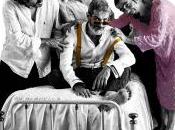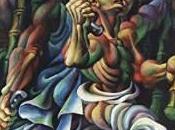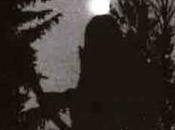 Questa volta vi propongo una mia chiacchierata con la scrittrice americanaCat Rambo.
Questa volta vi propongo una mia chiacchierata con la scrittrice americanaCat Rambo.Cat Rambo è una scrittrice molto attiva nei generi Fantasy e Fantascienza anche se le sue opere al momento sono ancora inedite nel nostro paese.
Un blog come Nocturnia, però dovrebbe provare a fare informazione, quindi con orgoglio presento la prima intervista italiana di Cat Rambo, perché un autrice di sicuro talento che merita di essere conosciuta anche nel nostro paese, inoltre la Rambo è vicepresidentessa della SFWA la maggiore associazione che raccoglie gli scrittori di genere negli States (responsabile, tra le altre cose dell'assegnazione dei Premi Nebula ), quindi parlare con lei significa conoscere qualcosa in più sulle attuali tendenze del genere.
L'intervista è stata realizzata nel mese di ottobre 2014 ma riesco a presentarla solo adesso (e me ne scuso con l'autrice). Desidero anche presentare i miei ringraziamenti ad Angelo Benuzzi che per la terza volta ha corretto sistemato meglio le mie domande in inglese.
Bene, mi sono dilungato fin troppo, vi lascio all'intervista, QUI trovate una breve scheda sull'autrice.
Ciao!
(For english version, please scroll down )
Nick : Ciao Cat! Benvenuta su Nocturnia, è un piacere averti come ospite. Come prima domanda ti chiedo di parlarci dei tuoi inizi e del momento in cui hai deciso di diventare una scrittrice.
Cat Rambo: La mia famiglia ha sempre pensato che sarei diventata una scrittrice, e che avrei seguito le orme di mia nonna, che scriveva romanzi YA (1). Da quando ho memoria, ho sempre scritto. Però è stato solo nel 2005, però, che ho deciso di fare sul serio con la scrittura. L'estate di quell'anno ho partecipato al workshop del Clarion West Writers. Alcune persone hanno avvertito gli studenti del Clarion West che alcuni tra loro non sarebbero riusciti a scrivere per un po' dopo il workshop. Ero così preoccupata ma così preoccupata per questo fatto che ho spinto al massimo per continuare a scrivere dopo il workshop.

Nick: In particolare cosa ti ha avvicinata alla narrativa di genere fantastico?
C.R: Ho sempre amato sia il fantasy che la fantascienza. Sono stati i miei generi preferiti sin da quando ero bambina e, anche oggi che ho letto tutto lo spettro possibile della narrativa, il fantastico è ancora li mio genere preferito.
Nick: Quali sono stati gli scrittori che ti hanno formato come lettrice prima ancora che come scrittrice? (Naturalmente puoi citare anche film, dischi, serie televisive, comics e quanto altro ti venga in mente)
C.R: Una baby-sitter cominciò a leggermi Lo Hobbit di JRR Tolkien quando ero in terza elementare. Ero così estasiata che ho iniziato a leggerlo per conto mio, anche quando lei non c'era. Un altra importante influenza è stata Samuel R. Delany - mio padre portò a casa uno dei suoi libri, The Fall of the Towers,(2) quando ero una adolescente lettrice e quel libro mi ha stupito e mi ha appassionato. Certamente anche molti altri scrittori YA; Fantasy e SF hanno avuto una grande influenza su di me, in particolare L.M. Boston, Robert A. Heinlein, C.S. Lewis, e Andre Norton.
Amavo anche Star Trek e Wild Wild West (di recente ho finito una storia steampunk, infatti, intitolata "Her Windowed Eyes, Her Chambered Heart" ispirata al mio episodio preferito di Wild Wild West.)
Nick: Esordisci professionalmente nel 1990 con la storia "Reminiscence of Planet Crabby", da allora hai scritto e pubblicato ininterrottamente per quasi 7\8 anni e poi ti sei fermata completamente quasi fino al 2004. Come mai?
C. R: Durante quel periodo ho impiegato la maggior parte della mia energia creativa nel gioco online, Armageddon MUD, che ho lavorato con per circa un decennio e mezzo. Ho lavorato anche come redattore tecnico, dal momento che avevo la tendenza a smorzare il mio entusiasmo per la scrittura narrativa.
Ma durante tutto questo tempo, continuavo a pensare a me stesso come ad una scrittrice. Tuttavia, ad un certo punto, ho detto a me stessa che se volevo definirmi tale, avevo davvero bisogno di fare sul serio.

Nick: L'anno di svolta per te però rimane il 2007 in cui diventi editor della rivista online Fantasy Magazine. Attività che ha accompagnato buona parte della tua vita professionale nel settore. Che bilancio tratti di questa esperienza?
C.R: Ho amato molto lavorare con Fantasy Magazine! Mi ha permesso di leggere le tante nuove voci che si affacciano nel genere ed è stato una grande gioia poter vedere tante di loro riuscire ad accendere con grande successo nel mondo della Fantasy e della SF. Inoltre mi ha incitato a pensare profondamente a quello che amavo nelle storie, a che specie di cose rendessero una storia realmente memorabile e su come appassionare un lettore. Recentemente in veste di curatore-ospite ho pubblicato un numero della rivista, il loro speciale “Women Destroy Fantasy„ e leggendo tra la varia fanghiglia (3), è stato adorabile ritrovare tanti nomi noti come pure il conoscerne alcuni di nuovi.
Nick: C'è una questione che m'interessa molto: il tuo lavoro di editor ha influito in qualche modo nel tuo lavoro di scrittrice? Ritieni che abbia cambiato il tuo approccio alla scrittura?
C.R: Penso che sicuramente mi abbia aiutato a capire alcune cose. Ad esempio, imparare che uno scrittore ha davvero bisogno di pochi paragrafi per riuscire, o meno, a catturare l'attenzione di un editor, è stata una rivelazione che non mi sarebbe venuta se non avessi letto io stessa un mare di fanghiglia.
 Nick : Una delle tue opere più conosciute è la raccolta "NEAR+FAR" del 2012, in cui riprendi quasi il formato dei vecchi Ace Double, da un lato i racconti ambientati temporalmente nel lontano futuro ed un lato i racconti ambientati nel futuro più vicino. Come mai questa scelta?
Nick : Una delle tue opere più conosciute è la raccolta "NEAR+FAR" del 2012, in cui riprendi quasi il formato dei vecchi Ace Double, da un lato i racconti ambientati temporalmente nel lontano futuro ed un lato i racconti ambientati nel futuro più vicino. Come mai questa scelta?C. R: Mi ero resa conto che le storie si dividevano in due categorie distinte, il vicino futuro e il lontano futuro, e stavo cercando di capire come utilizzare tale distinzione. Originariamente avevo pensato di fare il libro come due piccoli libri separati, ma mi sono ricordata dei vecchi Ace Double. C'è stato un periodo in cui ho lavorato in una libreria, e ne avevamo parecchi numero tra i libri usati, ed io ho sempre pensato che fossero un'idea elegante. Realizzare il mio libro sulla falsariga dei Double sembrava un'idea divertente. L'editore, Tod McCoy di Hydra House, ha fatto un ottimo lavoro studiando quei vecchi volumi tirandone fuori alcuni degli elementi di design.
Sono davvero orgogliosa della bellezza della versione fisica di NEAR+FAR. Ha due cover splendide, della meravigliosa arte interna, e la natura delle copertine su due lati rende tutto più interessante.
Nick: Abbiamo detto che il Tempo è l' elemento unificatore di NEAR+FAR. Da cosa nasce il tuo interesse presso questo argomento?
C.R: Penso che ogni volta che si scrive di fantascienza, si finisca con ricadere in una o l'altro dei due futuri. Il futuro vicino rende possibile allo scrittore il commentare la storia recente ed il mondo intorno a lui, mentre il futuro lontano a volte esamina i temi che possono essere un po'più astratti.
Io sono di gran lunga più affascinata dai romanzi che affrontano il lontano futuro, ma comunque penso che non ci sia modo per poter predire come il mondo o l'umanità sarà tra 500 anni. Ci sono semplicemente troppi cambiamenti che non possiamo prevedere. Un esempio tra tanti è quello dei , microprocessori -- ben pochi tra gli scrittori dell' età dell'oro della sf ci avevano pensato e così seguendo quelle linee di pensiero hanno scritto le loro storie con i computer grandi come un pianeta.
Ma a volte la SF ci vede anche giusto. I telefoni cellulari, per esempio, assomigliano in maniera incredibile ai tricorders che la gente vedeva in Star Trek.
Nick: Sono molto incuriosito dal progetto The New Weird a cui hai collaborato. Ce ne vuoi parlare?
C.R: New Weird era un'antologia messo insieme da Ann e Jeff VanderMeer. Hanno chiesto a diversi scrittori di partecipare ad un esperimento di "round-robin", dove ognuno di noi ha scritto una parte della narrazione. Ho apprezzato il progetto perché gli scrittori che avevano preso in mano quel mondo era così diversi l'uno dall'altro.

Nick: A parte The New Weird so che partecipi spesso a progetti di collaborative world, giochi di ruolo e a Round Robin. C'è qualcosa che ti piace molto in questo tipo di lavori? E secondo te quali sono i maggiori pregi e difetti in quest'attività'
C.R: Mi piacciono i progetti collaborativi, perché trovo un sacco di ispirazione e di energia nel vedere come qualcun altro affronta le stesse cose. Una buona collaborazione è più simile a una esplorazione di ogni altra cosa, ed è molto divertente per vedere che cosa ne emerge. "The Surgeon's Tale", che Jeff VanderMeer ed io abbiamo scritto insieme, rimane una delle mie storie preferite di tutti i tempi, ma ora, guardando indietro, è difficile ricordare che quali parti ha realizzato Jeff e quali ho scritto io.
Tali progetti possono essere anche frustranti quando i collaboratori non funzionano allo stesso ritmo, o se hanno approcci molto diversi riguardo alla stessa cosa. Ma se si ha pazienza di solito il risultato si traduce in qualcosa di meraviglioso.
Nick: Passiamo al lato pratico del tuo lavoro: ci descrivi una giornata lavorativa-tipo di Cat Rambo? Hai orari definiti di lavoro o scrivi quando capita? Hai riti particolari durante la scrittura?
C.R: In questo periodo sono stata in viaggio con mio marito per quattro mesi, così per poter scrivere qualcosa ho dovuto rubarmi del tempo ogni volta che potevo, ed è stata una cosa frustrante. Sto aspettando con impazienza di poter tornare a Seattle il mese prossimo (4) e così il poter riprendere la mia giornata lavorativa- tipo, che consiste nello scrivere durante la mattina, pranzo e una passeggiata e poi il riprendere con la scrittura. Scrivo molto a mano in un blocchetto grande -- un piccolo taccuino non va troppo bene per me. In seguito uso il software per la dettatura per trascrivere la quello che ho scritto.
Sono una grande fan delle scritture cronometrate, quando sono comincio a lavorare metto un temporizzatore per quindici minuti e poi attacco -- senza preoccuparmi di essere coerente o riprendere al punto che avevo lasciato, pensando solo alla creazione delle parole. Inoltre tendo a lavorare ad una serie di storie contemporaneamente --di solito ho almeno cinque o sei progetti in contemporanea e mi piace lavorare alternativamente tra loro se uno di questi progetti si blocca.
Mi piace molto ascoltare musica mentre scrivo, ma preferisco non ascoltare testi in lingue che capisco altrimenti mi distrarrei e non riuscirei a concentrarmi sulla scrittura. Preferisco quindi la musica sudafricana e celtica.

Nick: Recentemente sei stata nominata vice-presidente della SFWA (5) In molti paesi però compresa l'Italia la narrativa fantastica scritta ha perso molti lettori, la crisi è maggiore per quanto riguarda la fantascienza scritta, accusata da diverse parti di aver perso la sua capacità di predire il futuro o di descrivere il nostro presente Molte persone Secondo te però generi come la fantascienza o la fantasy hanno ancora spazio nel mondo di oggi? E sopratutto potranno ancora avere un loro futuro?
C.R: Anche se una certa fantascienza prova a predire il futuro, quello è un compito impossibile. Ogni scritto di fantascienza ha luogo, in parte, per il tempo in cui è stato scritto tanto come per il tempo che prova a descrivere. Secondo me, la fantasy | fantascienza è un campo notevolmente ricco in quanto permette di poter letterarizzare le metafore, creare le storie dove qualcuno realmente indossa il cuore sulla manica o dove gli amanti, invece di annoiarsi a vicenda, diventano invisibili l'un con l'altro. F& SF tengono conto di una complessità profonda e meravigliosa che ancora prova a fare quello che ogni tipo di narrativa, di qualsiasi genere sostenga di appartenere, fa: cioè esplorare che cosa significhi essere umani.
C'è molta fiction “letteraria„ in circolazione che a me sembra che non voglia nemmeno ringraziare la fantascienza e la fantasy ma che che sta comunque prendendo in prestito molti elementi dalla Cassetta portautensili della SF e della fantasy. È tutta Letteratura -- tutto quello che cerchiamo di ottenere, indipendentemente dal fatto di avere i razzi e unicorni che saltellano attraverso le pagine, è quello di provare a raccontare una storia interessante.
Nick: Se tu dovessi consigliare ad un lettore italiano che non ha mai letto niente di tuo o ad un editor italiano che non ha mai pubblicato qualcosa scritto da te, quale tua opera gli consiglieresti come esemplificativa della tua narrativa?
C.R: Ho un paio di recenti pezzi a cui sono affezionata. Il primo si intitola, "English Muffin, Devotion on the Side" è uno scritto di fantascienza sul prossimo futuro ed e apparso su Daily Science Fiction. Per quanto riguarda il fantasy, invece "Rappacini' s Crow", che è stato pubblicato in Beneath Ceaseless Skies, che descrive un mondo oscuro e steampunk, dove un infermiere in un ospedale di guerra tenta di definire il suo rapporto con Dio.
http://dailysciencefiction.com/science-fiction/virtual-reality/cat-rambo/english-muffin-devotion-on-the-side
http://www.beneath-ceaseless-skies.com/stories/rappaccinis-crow/
Nick: Tra i tuoi colleghi scrittori segui con maggiore attenzione ed interesse?
C.R: Ce ne sono tanti tra loro! Alcuni dei miei preferiti: Daniel Abraham, che offre sempre una grande storia e un mondo fantastico; Samuel R. Delany, che rimane uno dei miei eroi; Gemma Files, che fa Weird Western come nessun altro; Karen Joy Fowler, che riesce a stupirmi ogni volta; Elizabeth Moon, che scrive della favolosa fantasy militare e che ha creato una delle mie eroine preferite di tutti i tempi, Paksennarion ... l'elenco potrebbe continuare a lungo. Ho appena letto The Mirror Empire di Kameron Hurley, e posso dirti che lei è una persona il cui lavoro ho sempre cercato.
Nick: Progetti futuri: a cosa stai lavorando adesso e cosa ci dobbiamo aspettare da Cat Rambo nel prossimo futuro? E sopratutto vedremo qualcosa di tuo tradotto in italiano?
C.R: In questo momento ho la soliti una mezza dozzina di storie su cui sto lavorando, oltre a un romanzo, The Bloodwarm Rain, un fantasy post-apocalittica. Per quanto riguarda le traduzioni italiane, certo che mi piacerebbe averne. Sentitevi liberi di chiedere agli editori di contattarmi! ;)

Nick: Bene, Cat è tutto. Ti ringrazio ancora per la tua gentilezza. Nel salutarti ti rivolgo la classica domanda finale del blog Nocturnia: esiste una questione alla quale avresti risposto volentieri e che io invece non ti ho rivolto?
Cat Rambo: Quella è una così buona domanda che io stessa ho utilizzato più di una volta! Sto viaggiando molto ultimamente e sto pensando a come quello che vedo influenza il mio romanzo. Continuo trovare nuove fonti di ispirazione. Le storie che ho finito durante il viaggio includono “Jaco Tours,, una moderna storia horror e “Preferences,„ che si svolge a bordo di una nave da crociera. Se i lettori volessero scoprire più circa alcuni di quei racconti, ho incominciato una campagna di Patreon, dove i lettori possono sottoscrivere ed ottenere a una coppia delle mie storie ogni mese nel loro email. (http://www.patreon.com/catrambo)
(1) YA: Young Adult.
(2) The Fall of the Towers: è un antologia americana che raccoglie i romanzi della omonima serie fantasy e cioè Captives of the Flame; Le Torri di Toron e La Città dei Mille Soli. In seguito Captives of the Flame è stato riscritto e riadattato col nuovo titolo de La Città Morta.
(3) Ho tradotto col termine "fanghiglia" ma, in alternativa, avrei potuto impiegare il termine "melma". L'espressione impiegata nell'originale è " in reading through the slush" . Gli "Slush reader" (potrei tradurre letteralmente come " i leggi-melma" ) nell'editoria americana sono quegli editor o quegli assisteni degli editor il cui compito principale è quello di leggere i manoscritti inviati alla casa editrice
(4) L'intervista- come ho già detto prima- è stata rilasciata a fine ottobre.
(5) Science Fiction & Fantasy Writers of America : l'associazione degli scrittori di genere americani.
INTERVISTA WITH CAT RAMBO - THE ENGLISH VERSION!
 This time I propose to you my interview with the American SF and Fantasy writer Cat Rambo.
This time I propose to you my interview with the American SF and Fantasy writer Cat Rambo.Cat Rambo is a writer/ editor very active in the genres. She's also vice president of SFWA, although his works are currently still unpublished in Italy.
Today Nocturnia, present the first italian interview of Cat Rambo, this interview was conducted in the month of October 2014 but I can present it only now (and I apologize my delay with Mrs Rambo).
Well, I have dwelt too much, now I leave you to read the interview.
Welcome to Nocturnia!
And good read to everybody !!!
Nick: Hello Cat! Welcome to Nocturnia, it’s a pleasure to be your host. Here’s my first question for you: can you tell us anything about the beginnings of your career and about the moment when you decide to become a writer.
Cat Rambo: My family always assumed I'd be a writer, and follow in the footsteps of my grandmother, who wrote YA books. For as long as I can remember, I've written. It wasn't until 2005, though, that I decided to get serious about writing fiction. I attended the Clarion West Writers Workshop that summer. Some people warned the Clarion West students that some people didn't write for a while after the workshop. I was so so worried about this that I pushed hard to keep writing after the workshop.
Nick: To be more specific, what lead you to the fantasy / science fiction literarure?
C.R: I've always loved fantasy and science fiction. It was my preferred genre as a child and while nowadays I read all over the spectrum, it's still my favorite.

Nick: Who were the writers that formed you as a reader before as a writer? (Of course you can add movies, records, TV series, comics and whatever else you like)
C.R: A babysitter started reading J.R. R. Tolkein's The Hobbit to me in third grade. I was so entranced I started reading it on my own even when she wasn't there. Samuel R. Delany has been another important influence - my dad brought home one of his books, The Fall of the Towers, when I was a teen reader and it amazed and delighted me. Certainly YA , F & SF writers had a big influence too, most notably L.M. Boston, Robert A. Heinlein, C.S. Lewis, and Andre Norton.
I also loved Star Trek and Wild Wild West (I recently finished a steampunk story, in fact, called "Her Windowed Eyes, Her Chambered Heart" which is based on my favorite Wild Wild West episode.)
Nick: Your professional start, "Reminiscence of Planet Crabby", was from 1990. From then you wrote and publish for almost eight years, then you almost completly stop until 2004. Can you tell us why?
C.R: During that time I put most of my creative energy into an online game, Armageddon MUD, which I worked with for about a decade and a half. I also worked as a technical writer, which I found tended to dampen my enthusiasm about writing fiction.
But during all that time, I thought of myself as a writer. However, at some point, I thought to myself that if I wanted to call myself one, I really needed to get serious about it.

Nick: Your turning point (in my opinion) is in the year 2007 when you became editor for the online magazine "Fantasy Magazine", a side-by-side role of your professional writing career. What kind of balance can you draw of this experience?
C.R: I loved working with Fantasy Magazine! It let me read so many of the new voices entering the genre, and it's been a great joy to see so many of them go on to great success in the world of F&SF. It also made me think deeply about what it was that I loved in stories, what sorts of things made a story really memorable, and how to engage a reader. I recently guest-edited an issue of Fantasy Magazine, their special "Women Destroy Fantasy" issue and in reading through the slush, it was lovely to see so many familiar names, as well as meet some new ones.
Nick: There's an information that really intrigues me; did your work as an editor influenced in any way your work as a writer? Do you think that it modify your approach to writing?
C.R: I think it definitely helped me figure out some things. Learning that a writer really only has a few paragraphs to grab an editor's attention, for instance, was a revelation that wouldn't have come to me without reading through the slush myself.

Nick: One of your most known works is the 2012 collection "Near+Far", where you almost get back the feeling of old Ace Double volumes, a side for the tales set in the distant future and a side for the tales set in the nearest future. Can you tell us the reason why you did such a choice?
C.R: I realized that the stories fell into two distinct category, the near future and the far future, and was trying to figure out how to use that. Originally I'd thought of doing the book as two separate small books, but I thought about the old Ace doubles. When I was working at a bookstore, we used to get a number of those in as used books, and I always thought they were a nifty idea. Doing the book along the lines of one seemed like a fun idea, and the publisher, Tod McCoy of Hydra House, did a great job looking at old ones and pulling out some of the design elements.
I'm really proud of how beautiful the physical version of Near+Far turned out. It has two gorgeous covers, wonderful interior art, and the double-sided nature makes it extra interesting.
Nick: We already set that Time is the unifying element of the "Near+Far" collection; how did this interrest of yours take place?
C.R: I think whenever you're writing science fiction, it ends up falling into one or the other. Near future lets the writer comment on recent history, and the world around them, while far future sometimes looks at themes that may be a bit more abstract.
I'm fascinated by far future fiction, but I also think there's no way we can predict what the world/humanity will be like in 500 years. There's simply too many changes we can't anticipate. For example, microprocessors -- very few Golden Age sf writers thought along those lines and so you get stories with world-sized computers.
But sometimes SF gets it right too. Cell phones, for example, seem an awful lot like the tricorders people carried around in Star Trek.
Nick: I'm really excited about the "The New Weird" project you're into. Can you tell us anything about it?
C.R: The New Weird was an anthology put together by Ann and Jeff VanderMeer. They asked several writers to participate in a "round-robin" experiment, where each of us wrote a section of the narrative. I enjoyed the project because each take on the world was so different.

Nick: I know that you usually take part in collaborative world projects, role playing projects and round robin narrative. What do you like the most in this kind of works? What are the up and downs of this projects?
C.R: I like collaborative projects because I find that I get a lot of inspiration and energy from seeing how someone else tackles the same things. A good collaboration is more like an exploration than anything else, and it's a lot of fun to see what emerges. "The Surgeon's Tale," which Jeff VanderMeer and I wrote together, remains one of my favorite stories of all time, but now, looking back, it's hard to remember which pieces Jeff produced and which I did.
Such projects can get frustrating when the collaborators aren't working at the same pace, or if their takes on the same thing are very different. But patience usually results in something wonderful.
Nick: Now, this is about the most pratical side of your work; can you describe for us a typical workday of Cat Rambo? Do you have preset work hours of the day or you write anytime you like? Do you have peculiar habits when do you write?
C.R: Right now I've been on the road for four months with my husband, so writing has been whenever I can steal time for it, which has been a little frustrating. I'm looking forward to getting back to Seattle next month (1) and my usual workday, which is a morning of writing, lunch and a walk, and then more writing. I do a lot of my writing by hand in a large sketch-pad -- a small notebook just doesn't work for me. Later I use dictation software to transcribe the writing.
I'm a big fan of timed writings when I'm stuck on something. i set a timer for fifteen minutes and just go -- not worrying about being coherent or sticking to the point, just creating words. I also tend to be working on a number of stories at one time -- usually I've got at least five or six projects in the works, and jump around a bit in them if I'm feeling stuck on a particular one.
I like to listen to music while writing, but it can't have words that I understand or I find myself focusing on that rather than writing. South African and Celtic music are favorites.

Nick: Lately you've been nominated vice-president of SFWA; in many countries, Italy included, the fantasy / SF narrative lost a lot of readers due to accusations of having lost its role of predicting the future or to describe our present. Do genres like science fiction or fantasy still have a role in today's world? And will they have it in the future?
C.R: While some science fiction tries to predict the future, that's an impossible task. Every piece of science fiction is, to some extent, about the time period in which it was written as much as the time period it tries to describe. To me, fantasy and science fiction is a remarkably rich field in that it lets one literalize metaphors, creating stories where someone actually does wear their heart on their sleeve or where lovers, instead of becoming bored with each other, become invisible to each other. F&SF allows for a deep and wonderful complexity that still tries to do what every piece of fiction, no matter what genre it claims to be, does: explore what it means to be human.
There's a lot of "literary" fiction that to me seems like science fiction and fantasy that just doesn't want to acknowledge that it's borrowing from the F&SF toolbox. It's all fiction -- all everyone is doing, whether or not we have rockets and unicorns gamboling through the pages, is trying to tell an interesting story.
Nick: If you have to recommend a work of yours to an italian reader (or an editor) who never read any of it, which one you will suggest as a major example of your narrative?
C.R: I have a couple of recent pieces I'm fond of. One, "English Muffin, Devotion on the Side" is near future science fiction and appeared in Daily Science Fiction. In fantasy, "Rappacini's Crow," which was published in Beneath Ceaseless Skies, is a dark and steampunk world, where a nurse in a war hospital tries to resolve his relationship with God.
http://dailysciencefiction.com/science-fiction/virtual-reality/cat-rambo/english-muffin-devotion-on-the-side
http://www.beneath-ceaseless-skies.com/stories/rappaccinis-crow/
Nick: About your fellows writers; which one (or more) do you follow with the most attention?
C.R: So many of them! Some of my favorites: Daniel Abraham, who always delivers a great story and an amazing world; Samuel R. Delany, who remains one of my heroes; Gemma Files, who does weird Western like no one else; Karen Joy Fowler, who just amazes me every time; Elizabeth Moon, who writes fabulous military fantasy and one of my all-time favorite heroines, Paksennarion...the list could go on and on. I just read Kameron Hurley's The Mirror Empire, and can tell she's someone whose work I will always look for.

Nick: Future works; what are you writing right now and what we will get from Cat Rambo in the near future? Do we will get finally any of your works translated in italian?
C.R: Right now I've got the usual half a dozen stories I'm working on, plus a novel, The Bloodwarm Rain, which is a post-apocalyptic fantasy. As for Italian translations, I'd love that. Feel free to ask publishers to approach me! ;)
Nick: All right Cat, that's all. Thank you once again for your kindness. While I salute you there's the classic last question of Nocturnia blog: is there any question that you will have liked to answer to and that I haven't asked you?
Cat Rambo: That's such a good question, and one I've used myself more than once! I've been traveling a lot lately and thinking about how that affects my fiction. I keep finding new inspiration from it. Stories I've finished on the road include "Jaco Tours," a modern horror story and "Preferences," which is set aboard a cruise ship. If readers would like to find out more abotu some of those, I've set up a Patreon campaign, where readers can subscribe and get a couple of my stories each month in their e-mail. (http://www.patreon.com/catrambo)
(1) This interview- was released in October 2014!






